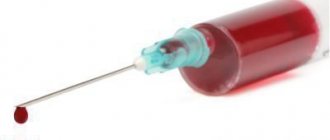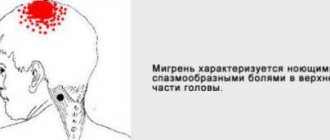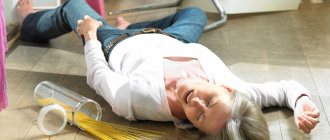How does trypanophobia manifest?
A person suffering from trypanophobia experiences a strong fear of any medical procedure associated with the need for injections or laboratory blood tests. The person does not consent to the injection of drugs and refuses to seek medical help.
Experts identify four main forms of the disorder, each of which has its own symptoms:
- vasovagal;
- associative;
- resistive;
- hyperalgesic.
Prevention: advice from psychologists
It should be remembered that a person can cope with internal problems and fears, regardless of age. And such a disorder is treatable.
Panic fear can be prevented. Psychologists advise following the recommendations below.
- Do not observe the actions of health care workers. Turn away, look to the side. It is important to think about something good.
- Distract yourself while the injection is being administered into the skin and you will not feel the pain that occurs during the process. If you come with a loved one, you can talk about something. Look around the office, sing your favorite song in a whisper.
- Ask for the injection while lying down. Especially if an injection into a vein is planned. According to doctors, in this position a person experiences a minimum of pain. The risk of losing consciousness is also reduced.
- Transfer the pain to another part of the body. The easiest way is to pinch yourself. This will help shift the pain center to another organ.
But the main thing is a positive attitude. You need to believe that everything will go well. Don't worry about what hasn't happened yet. You can recite affirmations - positive statements. They operate based on the method of self-hypnosis.
A cunning scheme will help with children - a reward for courage. Agree with your child that he will receive a sweet or a toy for good behavior.
If the baby is very small, promise a reward simply for giving the health worker an injection.
The pinch will help shift the center of pain from the injection site
How does the associative form of trypanophobia manifest itself?
Associative form (occurs as a result of intimidation of parents, demonstration by parents or other people of fear of injections, as well as due to childhood memories that it was once very scary or painful after an injection).
“All evil comes from the Internet.” The most unusual phobias of the 21st century Read more
In the associative form, the following symptoms occur:
- insomnia;
- panic attacks;
- prolonged background anxiety and concern about the upcoming procedure.
Causes of fear of needles and pricks
What is the reason for such prevalence of trypanophobia? Why do injections scare people so much?
The simplest and most common explanations:
- poor quality of medical care;
- insensitive attitude of medical staff towards patients;
- threats to a child by a doctor who hurts a disobedient one;
- complication after injection.
In fact, the situation with the phobia called fear of needles is much more complicated.
Scientists have identified three groups of reasons that lead to trypanophobia:
- Social factors come first. These include the incompetence and inattention of doctors, nurses, and the disdainful attitude of some health workers towards sanitary requirements. They cause fear of contracting an infection through a syringe. Some trypanophobes are firmly convinced that intravenous injections will open the door for a deadly virus to enter their body. Bad experiences in the past contribute to the development of injection phobia. An ineptly placed IV or a carelessly given injection cause the patient quite significant suffering, which in the future provokes trypanophobia. Fear most likely also develops in those who are unlucky enough to have it manipulated by a trainee who failed to hit the vein the first time.
- The psychological basis of the disease is no less common. Phobia of injections originates in childhood due to intimidation of the child by older children or adults, or improper upbringing. A negative moral attitude is fixed in the child’s subconscious, and reinforced by personal experience of painful procedures with subsequent inflammation and bruises leads to the appearance of an anxiety-phobic disorder. The impetus for the emergence of irrational fear can be a harmless, at first glance, cartoon in which the hero is punished with an injection for an unworthy act. A certain percentage of risk also comes from visiting children's clinics, where a child hears crying or sees peers screaming in fear.
- The most interesting are genetic causes. Some experts claim that the fear of injections as a phobia is embedded on a subconscious level, so people are not able to control their panic fears. Psychiatrists believe that the injection is associated with the deadly bites of poisonous snakes and insects that killed our ancient ancestors. Fear of the sight of one's own blood also leads to the development of a fear of injections.
Patients with type 1 diabetes mellitus can become trypanophobic. Constant injections of insulin in some cases lead to panic fear just by looking at the syringe.
Where does the fear of vaccines/injections come from?
Each form of psychological disorder has its own causes.
The vasovagal form is genetically determined and inherited. 80% of people with this form of trypanophobia have close relatives suffering from this disorder. There is a hypothesis that people have developed the ability to faint at the sight of arrows, knives, spearheads, as well as blood (usually someone else's). Losing consciousness and lying motionless on the battlefield helped to survive when meeting the enemy, and the genes of those who survived battles were passed on to their offspring in this way.
The resistant form is associated not so much with the fear of an injection, but with the fear of being helpless and immobilized during the process of medical intervention. The disorder develops against the background of one’s own (usually childhood) negative experience of injections. From childhood, a person can remember how they roughly held his arms and legs, covered his mouth, etc. The stress he experienced at one time leads to the emergence of a panicky fear of an injection.
The associative form of the disorder can arise as a result of a traumatic experience, for example, a child saw a sick relative get an injection, and after some time this person died. The traumatic event causes the patient to associate all needle procedures with the initial negative experience.
The hyperalgesic form is associated with an excessively low pain threshold. A person may actually experience severe pain from the injection. This form of the disease is quite rare (less than 10% of all cases).
“He wants to kill me!” Why are some people afraid of clowns Read more
Symptoms
Manifestations of fear of needles can be physical or psychological:
- Feeling weak at the sight or thought of needles.
- Increased heart rate or increased blood pressure.
- Shortness of breath, dry mouth, tremors and nausea are some other physical symptoms of trypanophobia.
- A full-blown panic attack is likely when a person is afraid that they will not avoid injections.
- Frightening thoughts and images of thorns, death, pain, etc. lead to the fact that it is impossible to distinguish reality from fantasy.
In addition to the fear of injections and needles, many trypanophobic people are afraid of anything related to blood.
The sight of red liquid causes most people to experience increased blood pressure and extreme anxiety, but for a person suffering from Trypanophobia, something different occurs: the blood pressure increases and then quickly decreases the next moment. During this rapid change in blood pressure, a vasovagal response occurs, which delivers less blood and oxygen to the brain, causing momentary loss of consciousness. The heart rate then slows due to activation of the parasympathetic nervous system. It is believed that this is due to the disgust reaction that is characteristic of Trypanophobia, making it different from others.
Moreover, FMRI studies have confirmed that the level of activation of the prefrontal cortex, which is responsible for controlling and regulating emotions, is lower in people with this type of phobia when they are exposed to irritating stimuli. This shows that Trypanophobia sufferers are less able to regulate their emotions due to decreased activity in the prefrontal cortex. This weakened expansive control causes a high aversion response as well as less observation of phobic symptoms such as fainting.
How can you overcome trypanophobia?
Anyone who can analyze their emotions can help themselves. The human body is programmed to independently solve internal problems. Self-help can be expressed in not watching how the nurse draws the medicine into the syringe, turning away at the moment of the injection, distracting yourself with music. You can also try to move the pain center, for example, pinching yourself. In the hyperalgesic form, pain and discomfort can be eliminated with the help of local anesthetics - agents applied to the skin.
Treatment for adults
Adults who can control their emotions will be able to help themselves. The human body is programmed to solve problems on its own. And the correct adjustment only helps with this:
- Self-help means that you don’t need to watch the doctor take the medicine, but turn away during the injection, distract yourself by listening to music, etc. You can try to shift the pain center, for example, by pinching yourself.
- You can reduce your anxiety by lying in a relaxed state. In this case, it is useful to talk with the nurse and tell them about the fears of performing the injection.
- Certain patients may benefit from the “knock out a wedge with a wedge” method. Fear can be overcome with the help of horror films. New experiences can help remove past fears into the background, but there is a chance that another phobia will appear.
- Fear of injections can be cured with breathing exercises and performing various exercises. A positive mood is created through affirmations. The point of this method is to say positive phrases before visiting the hospital.
Is it possible to get rid of trypanophobia as an adult?
In a mild form, this disorder can be cured on your own, without resorting to the help of professional psychologists or using antidepressants.
Drug treatment of trypanophobia comes down to taking mild sedatives and herbal remedies.
If the disorder is severe, when reactions such as panic attacks, hysterics, etc. appear, you can cope with fear under the guidance of a psychologist. The specialist will analyze the methods of self-regulation that have already been mastered, and will also suggest rational reactions.
Relaxing massage, yoga, martial arts, etc. can also help get rid of trypanophobia.
Symptoms
The thought of an injection or syringe causes panic and horror in a person with trypanophobia. A slight trembling appears, which later develops into severe chills.
Approaching the office where he will be given an injection into a vein or stomach, the symptoms of fear of needles and injections begin to manifest themselves more strongly.
Fear of injections in adults manifests itself as follows:
- muscle weakness occurs;
- blood pressure decreases;
- heart rate increases;
- sweating increases;
- body temperature increases;
- cramps appear in the stomach;
- a feeling of nausea occurs and vomiting is possible.
The patient is in a pre-fainting state. The face is pale, the hands are covered with cold sweat. His head is spinning and his vision is getting dark. Severe pain in the head area is possible.
The person may begin to cry continuously. If he is not reassured, panic attacks may occur: he cannot control himself and tries in any way to defend himself and eliminate the object of fear.
Children are more vulnerable than adults. Some may lose consciousness only at the sight of a needle, others during the process of administering an injection. You need to watch the baby very carefully. You should not ignore his words about feeling unwell.
If the injection is given at home, then the signs of trypanophobia will be the same. You need to prepare cotton wool and ammonia in advance. This will help the patient not to lose consciousness if fear suddenly worsens.
Systemic causes of fear of injections
As we already understand, most fears come from childhood. This happens when a child loses a sense of safety and security - the basis for harmonious development. In the case of injections, the child may feel the mother’s fear and anxiety before going to the treatment room.
There are situations when the mother’s fear crosses acceptable boundaries and she is asked to leave the office. The child is left alone with strangers who forcefully hold him down and cause pain. Such a brightly charged shock is perceived by the child as a threat to life. And there was no mother nearby to protect and protect.
As a rule, a child outgrows his fears with age. However, it is not always possible to defeat them, and they haunt a person for many years, poisoning his life.
The training “System-vector psychology” by Yuri Burlan shows the true causes of phobias and allows you not only to get rid of symptoms, but also to no longer experience fear in such situations.
By the way, many people experience a fear of injections to one degree or another. Fear may not even be caused by the procedure itself, but simply by the expected pain.
People with the cutaneous vector have more sensitive and delicate skin. Any unpleasant effect, especially punctures with a syringe and injection of medicine, is many times more painful for such a person than for a person without a skin vector.
If there is an anal vector, then the person tends to generalize negative experiences. Once he came across a rude and inexperienced nurse - now all the health workers seem the same to him: “They are all the same, their hands grow from the wrong place!”
In this article we are talking specifically about paralyzing fear, which is typical for people with a visual vector:
✓impressionable ✓sensitive ✓emotional ✓imaginative
They were born with the fear of death, which allowed humanity to survive in the harsh conditions of the past - not to die in the sharp claws and teeth of predators.
Today the world has changed, but the fear of death in the visual vector still continues to preserve us.+ Only when there is no real threat do we invent an imaginary danger. Thus, the fear of death is disguised as a huge number of phobias known to mankind. For example:
- fear of spiders, mice, snakes; - fear of water, fire, bright light; - fear of computers, electricity; - fear of germs, diseases; - fear of flying on an airplane, driving a car, etc.
How to stop being afraid of injections
As a rule, a person with a panic fear of needles suffers greatly in such situations and looks for ways to overcome the suffering.
As an ambulance, you can try the following methods:
- Try to establish trusting emotional contact with the health worker. Tell us about your fear of needles. Ask to be distracted with positive talk.
- You can ask a loved one to accompany you. Communication with him will distract you and will not allow you to get bogged down in internal experiences. If you can't be there in person, ask for support over the phone.
- Avoid watching videos that provoke fear of injections.
- Think about how many people medicine has saved their lives. Injections help in the most difficult and critical situations. For example, with anaphylactic shock.
Anyone who has tried to overcome the fear of injections consciously knows that holding on to it through willpower is extremely energy-consuming and most often it leads to nothing at all.
The causes of fears and the mechanisms of their occurrence are hidden in the unconscious, and therefore cannot be controlled consciously. At the “System-Vector Psychology” training, Yuri Burlan reveals the nature of the visual vector and explains how to transform these unbridled experiences into their opposite.
Getting rid of fears is facilitated by the correct implementation of the visual vector.
In the video, Yuri Burlan talks about how this can be done.
During the training, long-forgotten reasons that gave rise to fear are explored. Yuri Burlan guides listeners through the hidden labyrinths of the human psyche, highlights the dark dead ends of traumatic life scenarios and helps to unravel the tangles of cause-and-effect relationships. A deep awareness of your nature allows you not only to get rid of symptoms, but also to feel the true cause of any painful condition.
Registration for the free online training “System-vector psychology” by Yuri Burlan following the link.
Mesotherapy
Mesotherapy is in fashion today. Everyone has heard about her. Even those who have never resorted to it. So what is it? Mesotherapy is a treatment method that involves intradermal or subcutaneous administration of a drug in a very small dosage locally or at some distance from the affected area. The goal of mesotherapy is to achieve a therapeutic effect due to the pharmacological action of the drug and stimulation of biologically active points. Mesotherapy is used in many areas of medicine, including aesthetics. In the area of the face, neck and décolleté, the most popular anti-aging effects are lifting and biorevitalization. There are a number of drugs for the body - lipolytics, draining drugs, improving blood circulation. Mesotherapy is also in great demand among trichologists for the prevention and treatment of alopecia (baldness). This type of treatment progresses very quickly. Every year more and more new drugs appear, their capabilities and indications expand. Dermatocosmetologists are mastering new injection techniques. There are more and more patients who want to try this procedure. That is why we should not forget that mesotherapy is a therapeutic method. Therefore, it must meet the most stringent requirements for medical technology. This is the only way to prolong people’s youth, beauty and health.











